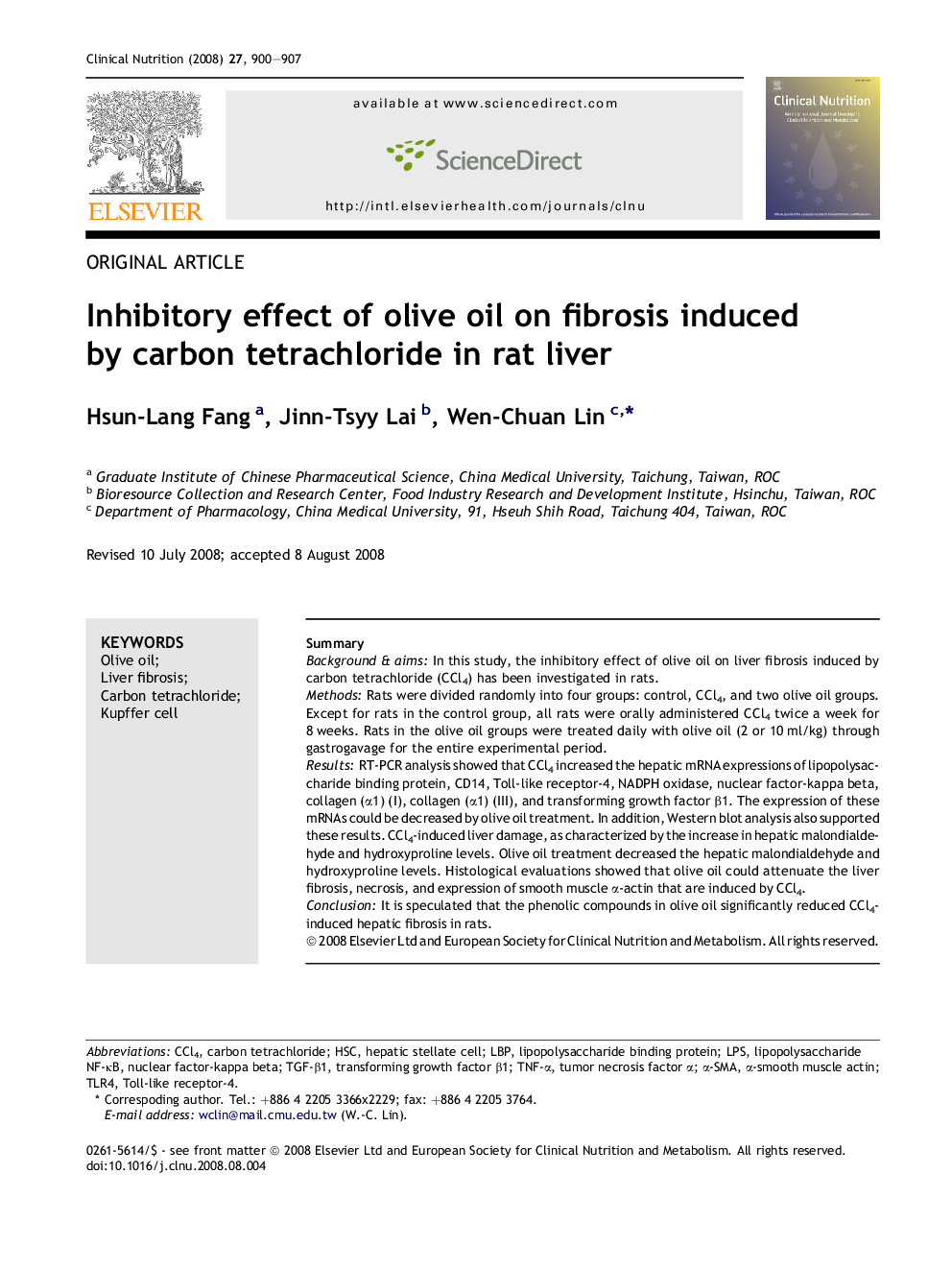| Article ID | Journal | Published Year | Pages | File Type |
|---|---|---|---|---|
| 2687502 | Clinical Nutrition | 2008 | 8 Pages |
SummaryBackground & aimsIn this study, the inhibitory effect of olive oil on liver fibrosis induced by carbon tetrachloride (CCl4) has been investigated in rats.MethodsRats were divided randomly into four groups: control, CCl4, and two olive oil groups. Except for rats in the control group, all rats were orally administered CCl4 twice a week for 8 weeks. Rats in the olive oil groups were treated daily with olive oil (2 or 10 ml/kg) through gastrogavage for the entire experimental period.ResultsRT-PCR analysis showed that CCl4 increased the hepatic mRNA expressions of lipopolysaccharide binding protein, CD14, Toll-like receptor-4, NADPH oxidase, nuclear factor-kappa beta, collagen (α1) (I), collagen (α1) (III), and transforming growth factor β1. The expression of these mRNAs could be decreased by olive oil treatment. In addition, Western blot analysis also supported these results. CCl4-induced liver damage, as characterized by the increase in hepatic malondialdehyde and hydroxyproline levels. Olive oil treatment decreased the hepatic malondialdehyde and hydroxyproline levels. Histological evaluations showed that olive oil could attenuate the liver fibrosis, necrosis, and expression of smooth muscle α-actin that are induced by CCl4.ConclusionIt is speculated that the phenolic compounds in olive oil significantly reduced CCl4-induced hepatic fibrosis in rats.
